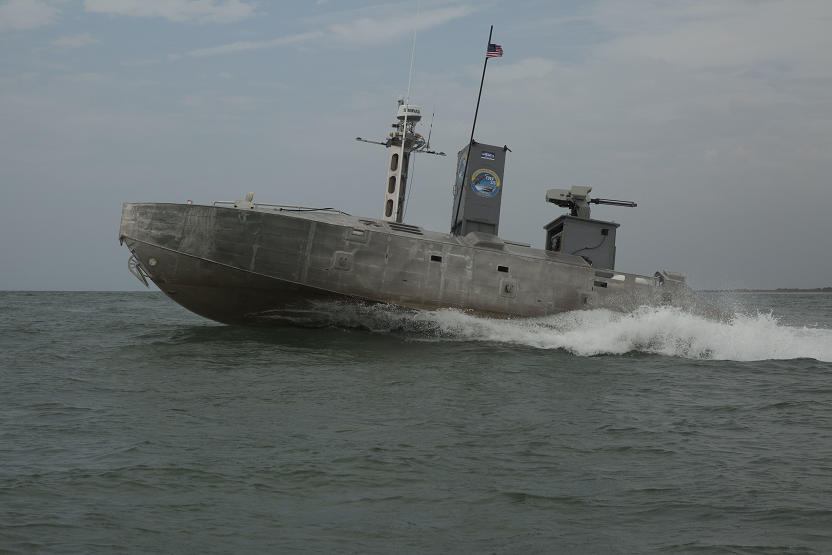This post is also available in:
 עברית (Hebrew)
עברית (Hebrew)
One of the major constraints restricting the operation of unmanned systems is power. The U.S. Navy wants to develop enabling technologies for advanced power generation systems for efficient, long-endurance unmanned surface vessels (USVs).
According to a solicitation for the Robust Unmanned Platform Power Systems project,
the Office of Naval Research, surface warship designers are interested in developing low-cost high-endurance reconfigurable ships that can accommodate payloads to help the Navy shift to a more distributed fleet architecture for optionally or lightly manned ships.
The power generation system should be modular and scalable for small- medium-, and large-size USVs, and support propulsion, ship service, sensors, and mission payloads, and be reliable enough for the naval environment.
This project has two technology thrusts: small power systems able to provide 25 to 250 kilowatts of power for small USVs; and large power systems able to provide 250 to 2,500 kilowatts for medium- and large-size USVs.
Small power systems should help to reduce maintenance and increase operational availability and endurance of small unmanned surface vessels..
The small and large power designs should operate with military fuels; have no scheduled maintenance for 4,000 to 8,000 hours; survive marine conditions like salt air ingestion; operate in rough seas; and be scalable to several platforms and power loads, as reported by militaryaerospace.com.


























